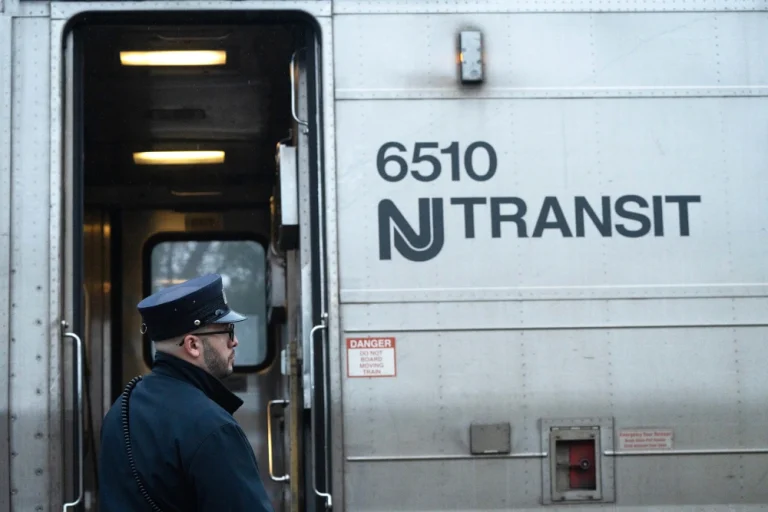New Jersey Transit strike halts service, disrupting travel for 350,000 commuters
New Jersey Transit rail operations ground to a halt early Friday as members of the union representing locomotive engineers walked off the job just after midnight, officials said — affecting an estimated 350,000 daily riders.
The Brotherhood of Locomotive Engineers and Trainmen (BLET), which represents about 450 engineers at NJ Transit, initiated the strike at 12:01 a.m., citing a longstanding pay dispute as the reason for the action.
Less than an hour before the strike deadline, Governor Phil Murphy and NJ Transit President & CEO Kris Kolluri held a news conference, expressing a desire to reach a fair agreement with the union. However, they emphasized that granting the engineers a deal above what other unions receive could lead to system-wide demands, potentially adding hundreds of millions of dollars in costs.
“NJ Transit is facing a sobering fiscal reality,” Murphy said.
The union claims its members are the lowest-paid locomotive engineers among all major U.S. passenger rail systems. They have been working without a contract since October 2019 and have not received a raise in six years.
“This has gone on long enough,” the union stated, arguing that NJ Transit has prioritized capital projects over its workforce.
The strike’s impact is significant, with NJ Transit warning of widespread disruption to daily commuters. MetLife Stadium also issued an alert earlier in the week, informing concertgoers attending Shakira’s Thursday and Friday shows that there would be no NJ Transit rail or bus service to the venue due to the strike.
Union members were set to begin picketing at 4 a.m. Friday at several locations, including Penn Station in Manhattan.
BLET National President Mark Wallace criticized the agency for misallocating funds: “They have money for penthouse views and pet projects, just not for their front-line workers,” he said. “Enough is enough. We will stay out until our members receive the fair pay that they deserve.”
Murphy and Kolluri said negotiations remain open and encouraged employees who can work remotely on Friday to do so. To ease the burden on commuters, they announced expanded bus service and additional park-and-ride options.
Despite the strike, Amtrak, PATH trains, and other bus services will continue operating.
This marks the first NJ Transit strike in more than four decades — the last occurred in 1983.

